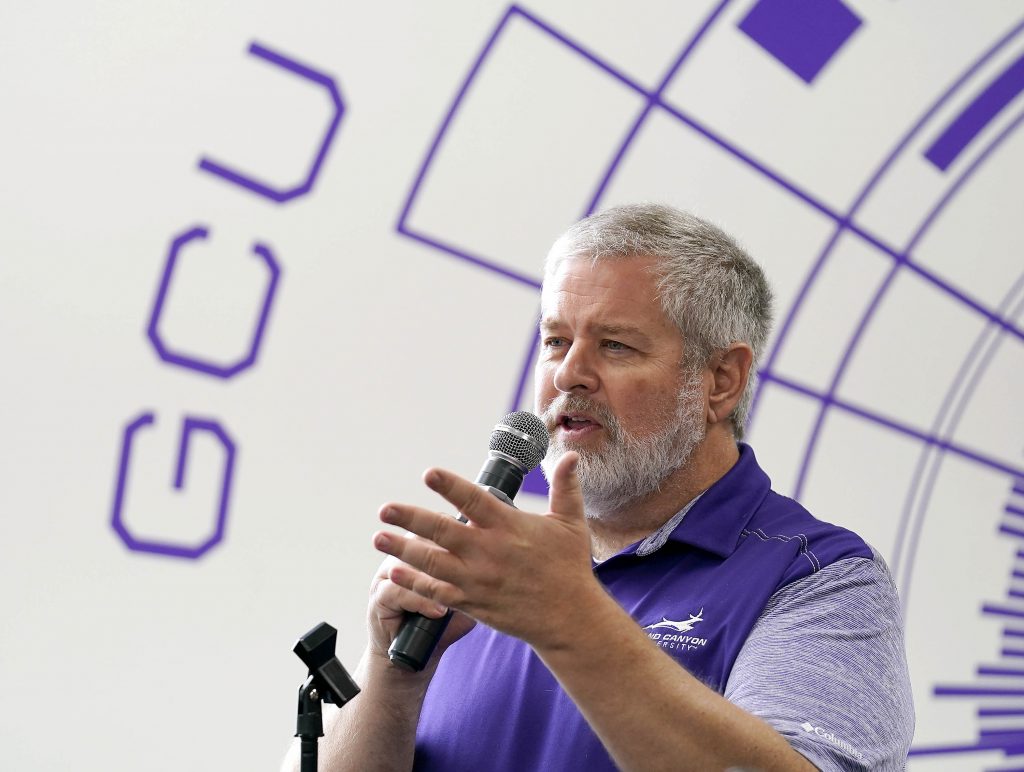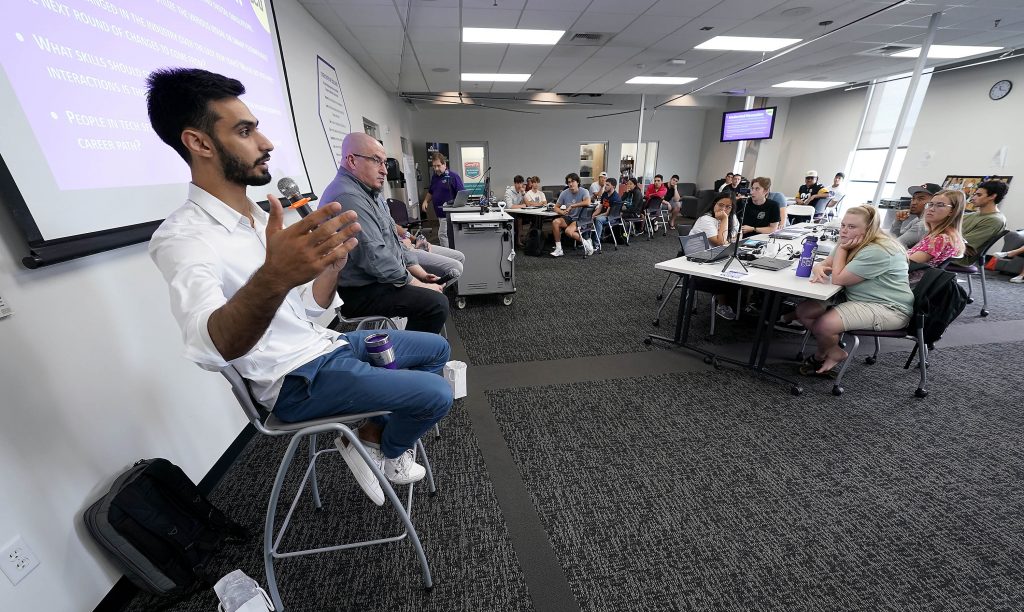
A second Grand Canyon University information technology program has earned a prestigious national designation that will boost students’ appeal to industry, particularly when it comes to government jobs.
The National Security Agency recently gave GCU’s Bachelor of Science in Cybersecurity program its stamp of approval, naming it a National Center of Academic Excellence in Cyber Defense (CAE-CD).
“This distinguished designation reflects the University’s commitment to excellence in cybersecurity education and service through community outreach and professional development,” said Associate Dean of Technology Dr. Pam Rowland.
In 2019 and again in 2023, the College of Engineering and Technology's Bachelor of Science in Information Technology with an Emphasis in Cybersecurity also was named a CAE-CD.
The yearlong, peer-reviewed vetting process is a rigorous one, Rowland said. Prospective programs are categorized as a CAE-CD only after meeting stringent criteria.

The fact that two programs have successfully met the National Security Agency requirements “showcases the strength and rigor of our cybersecurity programs,” Rowland said.
Regionally accredited two-year, four-year and graduate-level institutions in the United States can apply for the designation, which ensures students are learning concepts and skills deemed important by the National Security Agency and Department of Defense. It indicates that an institution is helping reduce threats to the national infrastructure by promoting higher education and research in cyber defense as well as providing the nation with a pipeline of qualified cybersecurity professionals.
To receive the designation, the College of Engineering and Technology had to show that: students have access to cybersecurity professionals, such as through talks and speaker panels; students compete in cybersecurity events; the campus has a cyber center (and does via GCU’s Cyber Center of Excellence); faculty are student-focused and knowledgeable within the field through publishing and presenting; the University is taking a multidisciplinary approach to cyber (it’s offered in various colleges); and the program reaches out to K12 students, to name a few of the criteria.
What this means for GCU students, Rowland said, is they’ll have more access to jobs with industry and government. The government sector often recruits from schools with the designation because their programs already have been vetted. Companies, she added, also recognize the rigor and hands-on experience students are getting from a CAE-CD designated program.
"And being part of the CAE-CD community gives GCU's (College of) Technology team access to valuable resources to support student success, including workshops and conference opportunities, networking with industry and government professionals, working groups, and grant-funding opportunities," she said.

Renae Weathers, National CAE program manager, said that GCU’s ability to meet high academic standards when it comes to cyber defense “will serve the nation well in contributing to the protection of the National Informational Infrastructure.”
According to the National Cyber Strategy, which details the Department of Defense’s plans to invest in and ensure the reliability and resilience of its cyber networks, there is a critical shortage in the United States of professionals with cybersecurity skills.
According to CyberSeek, while approximately 1.1 million people are employed in cybersecurity in the U.S. in 2024, more than 500,000 positioned are unfilled. In Arizona alone, reports CyberSeek, almost 23,100 are employed in the field with approximately 12,500 job openings.
“A highly skilled cybersecurity workforce is a strategic national security advantage,” relays the document, adding that “the government will continue to invest in and enhance programs that build the domestic talent pipeline.”
Weathers shared, “Education is the key to promoting these ideals.”
“The CAE Cyber Defense designation from the NSA is a testament to the exceptional efforts of our dedicated faculty, who are wholeheartedly committed to developing meaningful content and experiences for our cybersecurity students," Rowland said. "A true strength of our programs lies in the thoughtful incorporation of a Christian worldview, emphasizing the significance of integrity and ethical decision-making when navigating the complexities of cyber challenges.”
GCU’s Bachelor of Science in Cybersecurity’s designation as a CAE-CD is valid for five years, through 2029.















